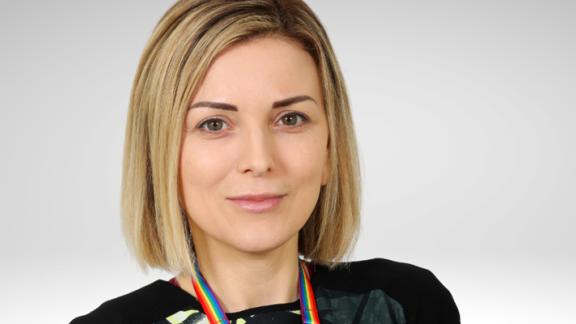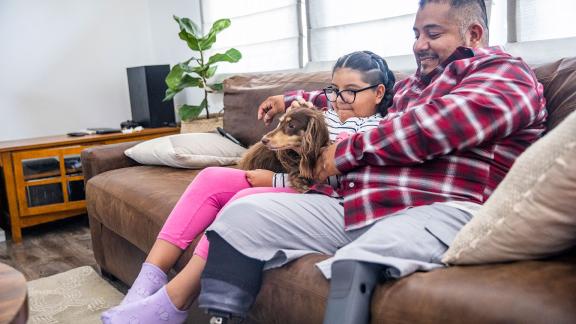Improving accessibility across our communications

Emma Mendes da Costa works as a communications and engagement manager, and is chair the disability staff network, at Sussex Community NHS Foundation Trust (SCFT). In this blog she talks about her experience as a disabled member of staff and the efforts she and her team have undertaken to improve communications outputs during COVID-19.
I joined SCFT in August 2017, after working as a freelance writer and researcher for 14 years, and I consider it to be one of the best decisions I have ever made. I have severe hearing loss and wear two hearing aids, which I have often felt I have to hide when taking freelance assignments, but at SCFT my lived experience is both recognised and valued. I feel comfortable openly identifying as disabled at work, and my workplace and role have both been adapted to my needs.
I know that I am unusually placed, living with sensory loss and working within NHS communications, and as such I endeavor to ensure all our communications, both internal and external, are as accessible as possible. Simple steps really can make all the difference, from subtitling videos and sharing BSL-interpreted content, to adding effective alt text to images on social media posts and making your hashtags accessible for people who use screen readers. I believe that providing accessible public health information is crucial in reducing health inequalities for disabled people, and that this is particularly prescient in 2020.
Shielding, social distancing, face coverings, and decreased access to public services all contribute to the isolation and potential marginalisation of disabled people, and I am proud that the trust has worked closely with our disability network members, listening to and learning from their experiences. For my part, my roles as network chair and communications and engagement manager have intersected and evolved together. We have put several measures in place to support disabled staff, volunteers, patients, service users and visitors. These include:
- The production of a poster during COVID-19 to help people communicate with each other while wearing face coverings. I worked closely with our designer on this, as someone with lived experience, choosing the wording carefully, for example, not asking people to speak slowly, as this often backfires when people slow down unnaturally, exaggerating their lip patterns and coming across as condescending.
- Ordering a range of button badges from a local neurodiverse business called Sootmegs, using money from our SCFT charitable funds. The badges are designed to help people navigate the new COVID-secure restrictions and include “Please offer me a seat”, “Let’s elbow bump instead”, “Not all disabilities are visible”, “I can’t lip-read through your mask”, "I know Makaton", "I am exempt from wearing a face covering," and "I sign BSL".
- Increasing our support of the Sunflower Lanyard Scheme by offering Sunflower Lanyard Scheme pin badges (compatible with most SCFT uniforms, and can be worn on trust lanyards) to SCFT staff and volunteers who wish to indicate they have a hidden disability, and may need extra time or additional support.
- Working with our digital transformation and quality and safety teams to fast-track the rollout of Google Live Transcribe on all our trust’s Android smartphones. The app has now been approved and unlocked for all SCFT users, so they can use speech to text transcription to augment their communication with patients/service users when they are wearing masks.
- Securing £20,000, again through our SCFT charitable funds, for Makaton training for staff working in our child development services and special care dental service.
Crucially, all these actions have been taken after consultation with our network members, and following feedback from our patients and service users, adhering to the philosophy of “nothing about us without us”. Everyone’s communication needs are different, and instead of looking for a one-size-fits-all approach to accessibility, we are constantly developing and improving our communication strategies based on the lived experiences of our staff and the communities we serve.
If you would like to find out more about what Emma, her team and the SCFT disability network have been doing, please email emma.mendesdacosta@nhs.net. You can also follow Emma on Twitter using the handle @emma_mdc.



